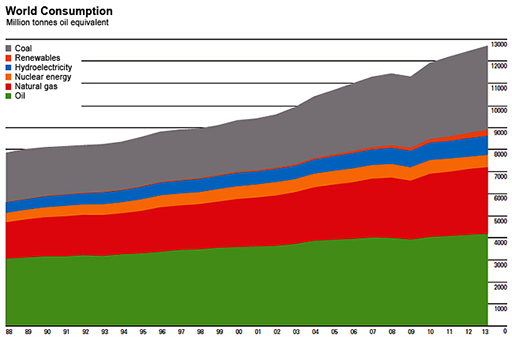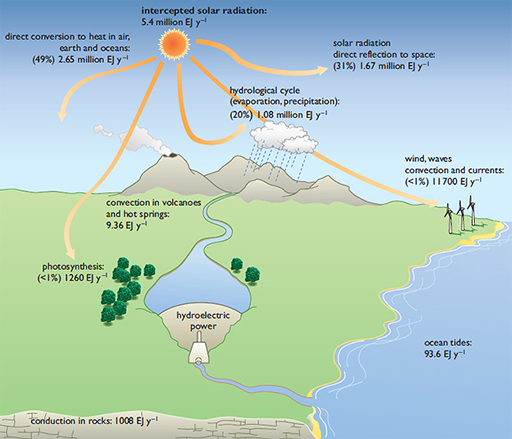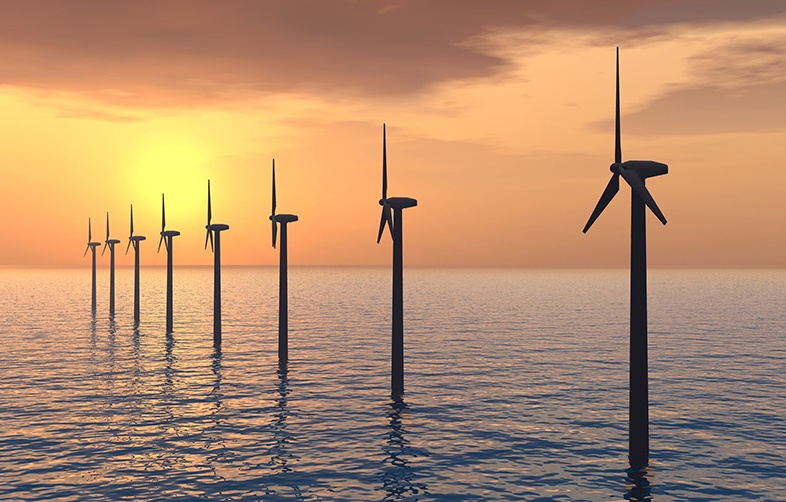Sustainability Energy can be defined as the energy that is not depleted by the continued use and does not produce significant pollution or other environmental problems while limiting the cause of health hazards or social injustices.
What are Sustainability Energy Sources
Renewable Energy sources are generally more sustainable than fossil or nuclear fuels. The world consumption of fossil and nuclear fuels is app. 80%+ which is an unsustainable situation.

What is Renewable Energy
Renewable energy is replenished at the same rate as it is used.
The SUN which is 150 million kilometers away from earth leaves around 3.8 million exajoules (EJ) per year available for use on earth which is the equivalent to about 8.000 times humanity’s present rate of use of fossil fuel and nuclear fuels.
The sun’s radiation comes from nuclear fusion reactions between hydrogen atoms in its very hot interior. However, this very hot temperature is not due to nuclear fusion.
Rather, the radiation from nuclear fusion prevents the Sun from getting hotter!
What is good news: The sun should continue to radiate this way for another five billion years.
The various forms of renewable energy on Earth depend primarily on intercepted solar radiation which totals
5.4 million EJ per year.

There are two non-solar renewable sources on Earth:
OCEAN TIDES are driven by the gravitational pull of the moon
GEOTHERMAL ENERGY from the Earth’s interior. This is heat emerging from volcanos and hot springs, and heat from hot rocks.
Today, we’ve learned the basics of renewable energy.
